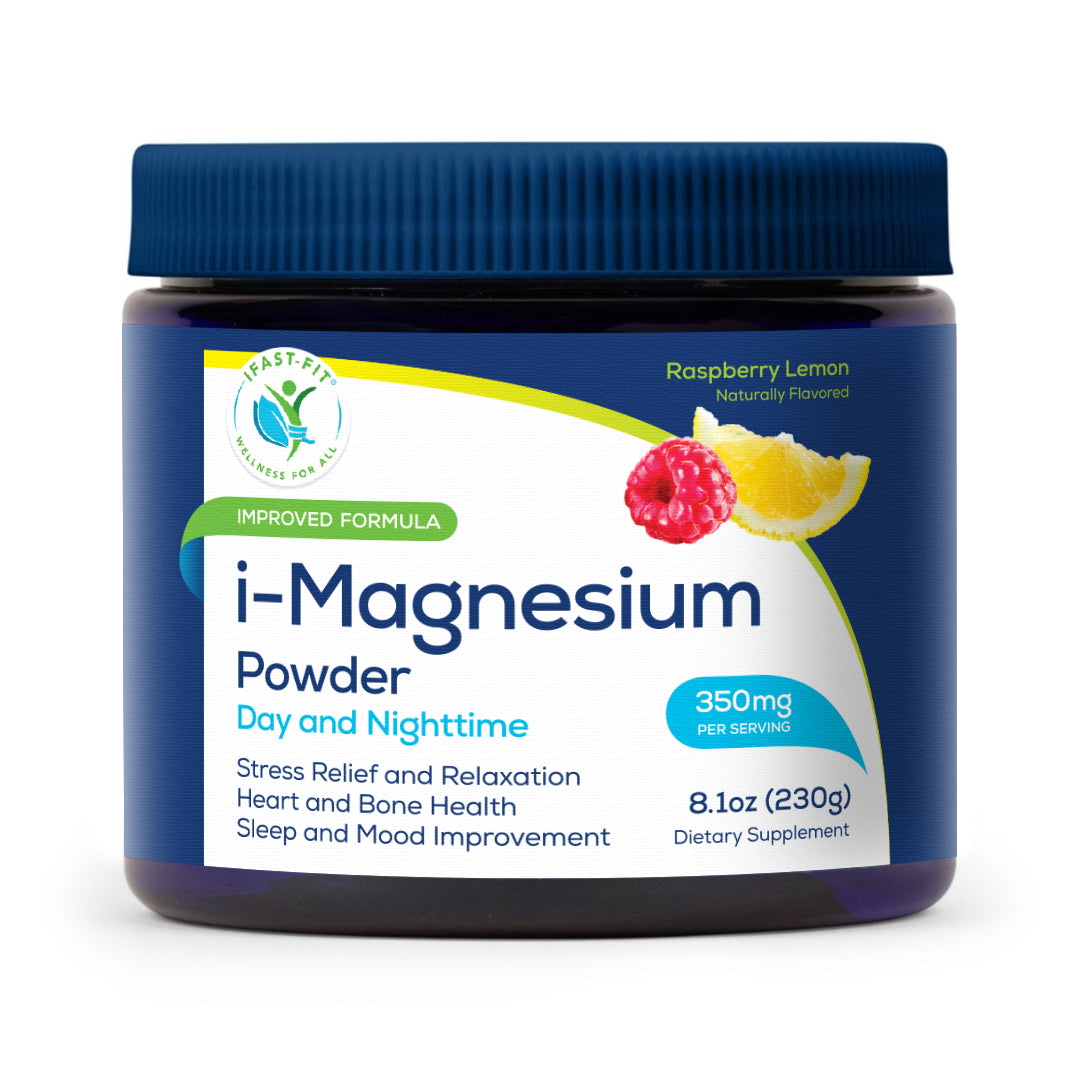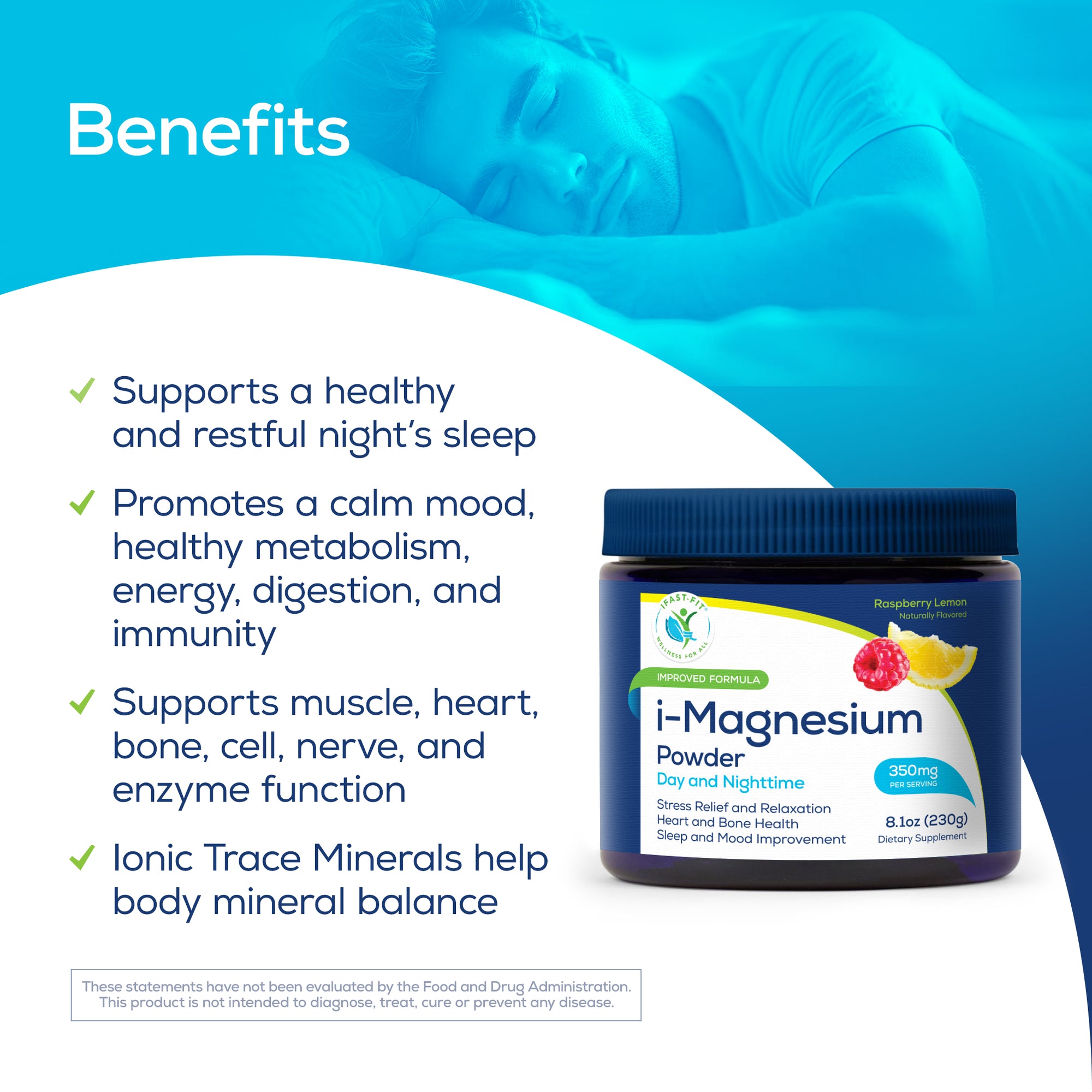Tu carrito esta vacío
¿Tienes una cuenta? Iniciar sesión para finalizar tus compras con mayor rapidez.
¿Tienes una cuenta? Iniciar sesión para finalizar tus compras con mayor rapidez.





No se pudo cargar la disponibilidad de retiro
From the regulation of muscle contractions and blood pressure to energy production, blood sugar balance and even weight management and mood disorders, magnesium’s role in the body is an important one. With such a long list of uses, it is no surprise it’s the fourth-most abundant mineral in the body, and involved in more than 300 enzymatic reactions.
Magnesium health benefits may include:
1. Keeping our bones and muscles strong
2. Acts as an antidepressant
3. Helps lower blood pressure, reducing risk of strokes
4. May ease pain caused by headaches and migraines
5. Improves quality of sleep
6. Alleviates PMS symptoms when combined with vitamin B6
A number of population studies have reported positive associations between magnesium intake and bone mineral density in both men and women. This is because magnesium is involved in bone formation through its influence on bone turnover, as well as its role in potentiating vitamin D. Adequate magnesium may also play a part in keeping our muscles strong and healthy; this is an important strategy for preventing falls and fractures in the older population.
Magnesium has been shown to have a mood-improving effect with benefits achieved both with or without the use of antidepressant medication.
For those with hypertension, magnesium may help regulate blood pressure. There are also wider cardiovascular benefits, with higher magnesium intakes linked with reducing the risk of strokes.
Magnesium deficiency appears to play a part in the development of migraines and headaches. However, evidence supporting the use of supplementation to prevent or reduce symptoms is, currently, limited.
As we age, we experience changes in our sleep patterns. A study looking at the effect of magnesium on a group of 60-80 year olds suggests the mineral may help reverse these changes. For the rest of us, magnesium may also be a useful sleep aid, because it helps quieten the nervous system, creating a calm and relaxed disposition.
For many women of reproductive age, the strains of cyclical anxiety, stress, mood swings and bloating as well as menstrual migraine have a significant impact on quality of life. Interesting studies suggest magnesium alone and in combination with vitamin B6 may help alleviate some of these symptoms.
Although found in a number of foods, including green leafy vegetables, nuts and seeds, unless you’re eating a varied diet you may not achieve the recommended daily amount of 270mg (women). Nutritional surveys support this, with reports of low magnesium levels among young adults in their 20s, especially women.
Other aspects of our diet can affect how efficiently we absorb magnesium. These include high intakes of caffeine and zinc supplementation.
To ensure you’re getting adequate amounts of magnesium, include a wide selection of the following foods in your daily diet:
“I was told that I have bad genetics because I easily develop complications with my body, but NutriFastFit taught me that with proper nutrients and self-care, there's no such thing as bad genetics.”
Jeremy Bennett
“When diving into NutriFastFit, I was like, 'Hmm, nothing much.' But keepin' it real, after rocking it regularly, bam! A blast of full-on energy hit me, feeling like I just aced life. This stuff's like a wizard's potion—crafted with love to rain down all the cool vitamins and essential minerals.”
Donalyn Reynolds
“As a child, I frequently visited the hospital, depleting our funds with medical bills. The financial strain prevented me from embracing a healthy lifestyle. It wasn't until I discovered NutriFastFit that I envisioned a life different from the one I had experienced. NutriFastFit has truly transformed my perspective.”
Rich Parker